Valmikinagar, Bihar, June 16 2020:
In some great news shared by Wildlife Trust of India’s field biologist this World Crocodile Day, 86 newly hatched gharial were released into the Gandak river. These hatchlings emerged after successful incubation of 65-70 days from nests protected by community watchers deployed in the project.
Our previous update (April 24th 2020) reported 94 eggs of the critically endangered gharial guarded by community watchers in WTI’s Gandak Gharial Recovery Project supervised by biologist Subrat Behera.
In addition to these 86 hatchlings, one nest (undetected by the team) had also successfully hatched on the same day with a clutch of 30 hatchlings. Thus a total of 116 hatchlings got added to the riverine ecosystem at one site.

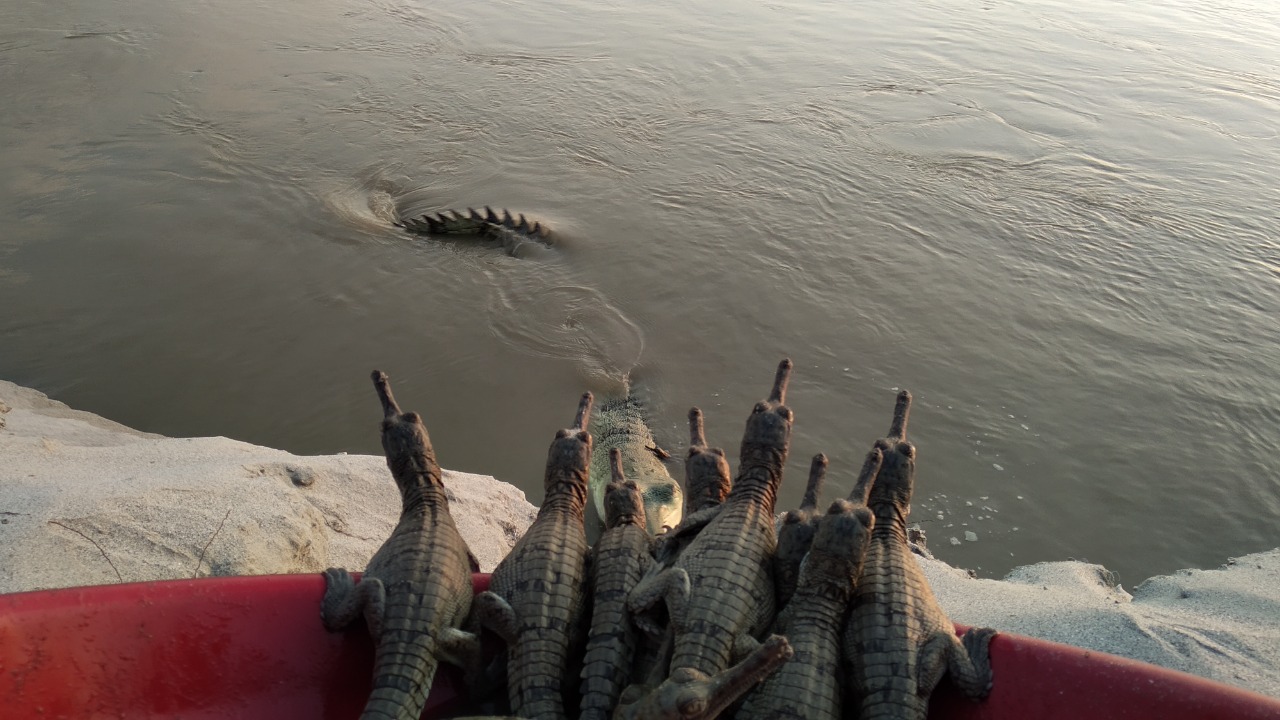
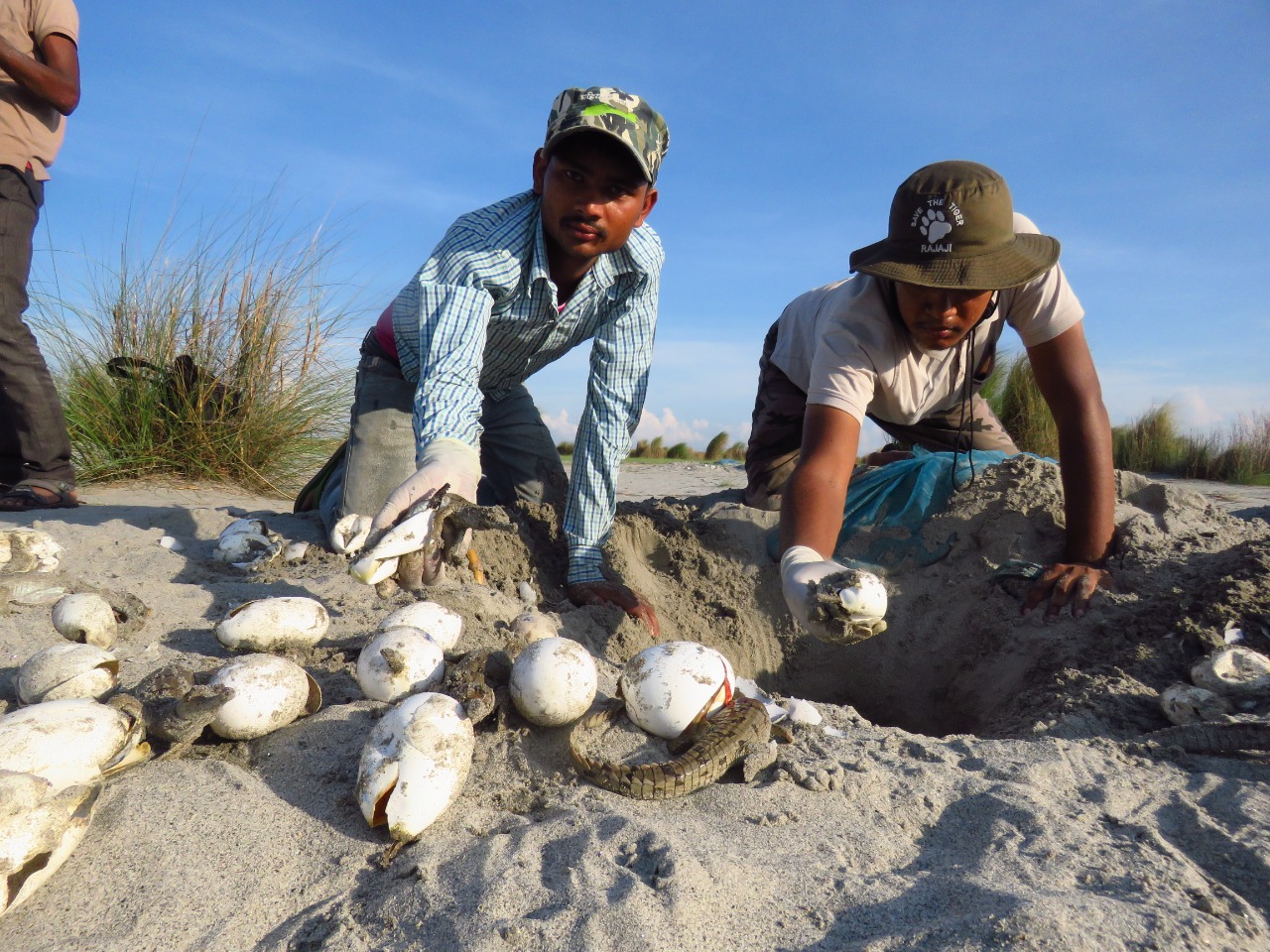
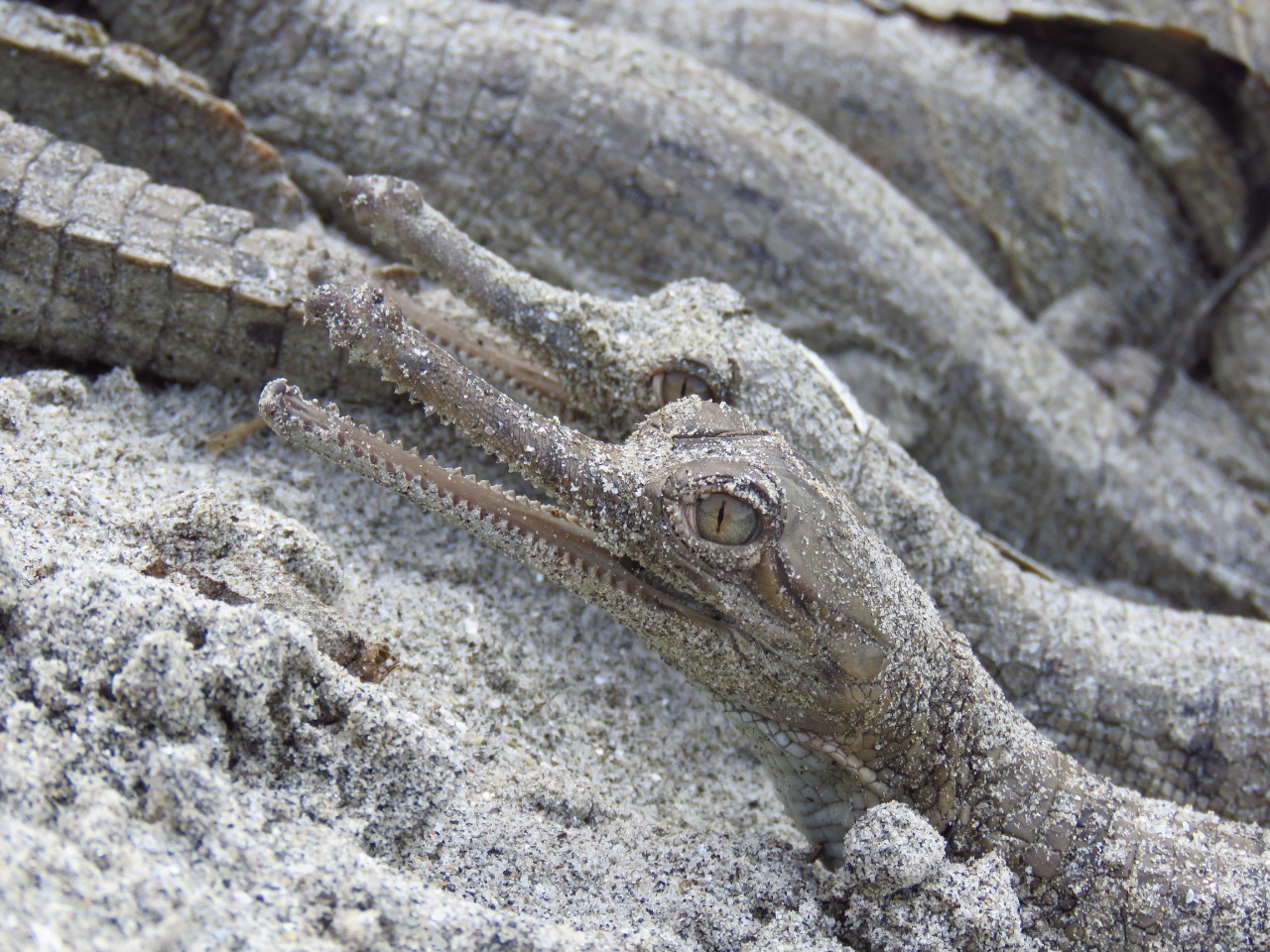
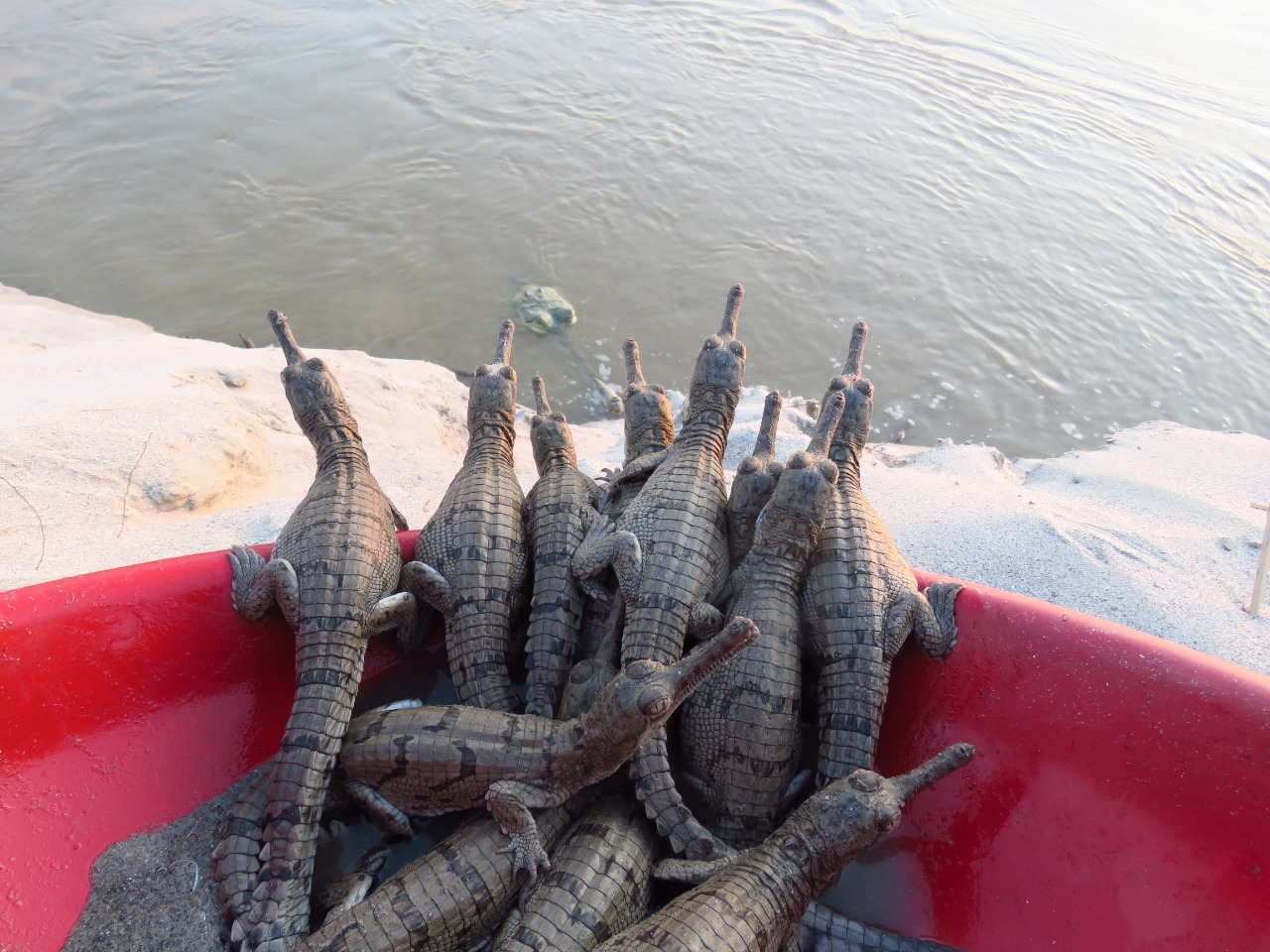
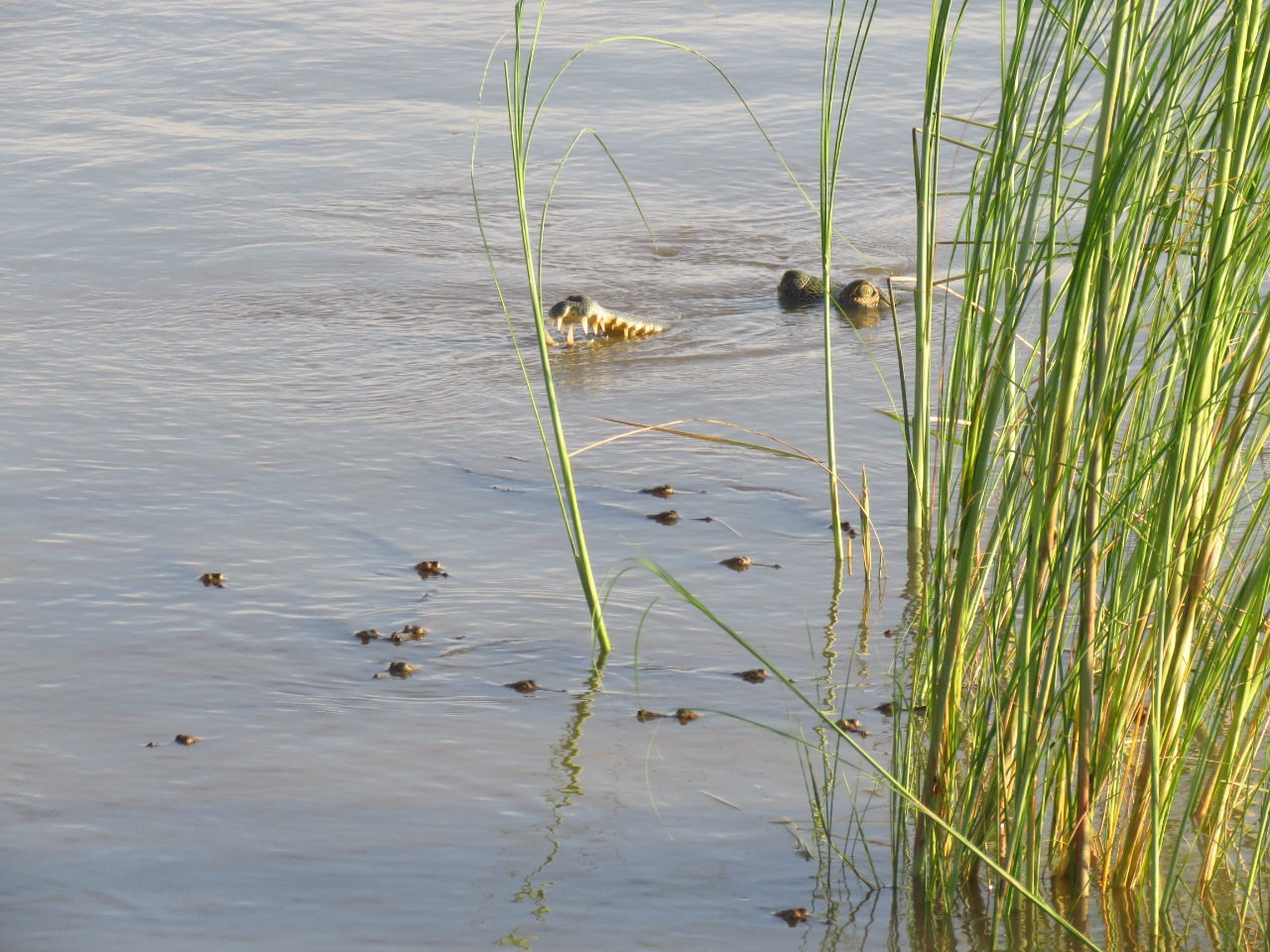
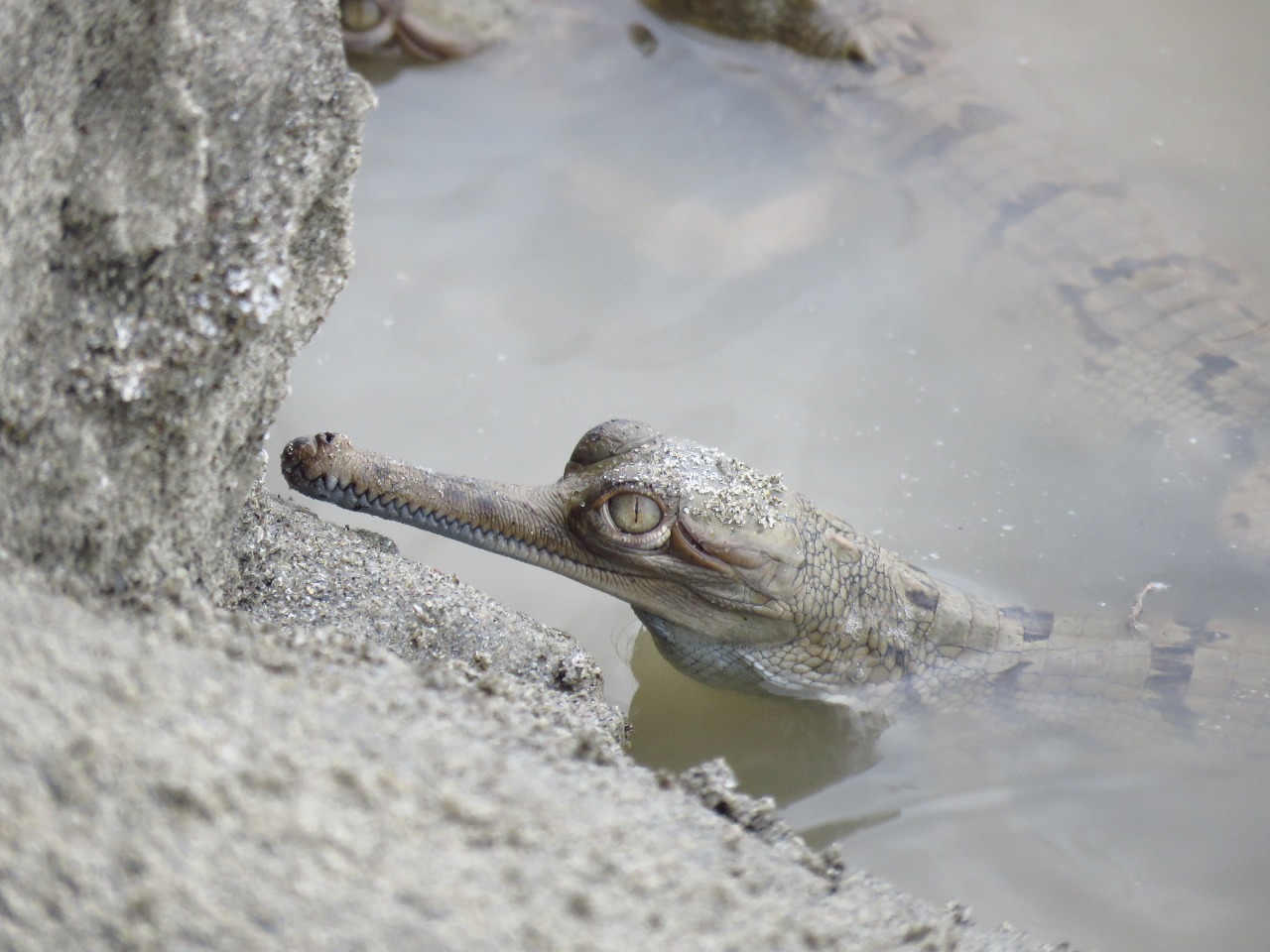
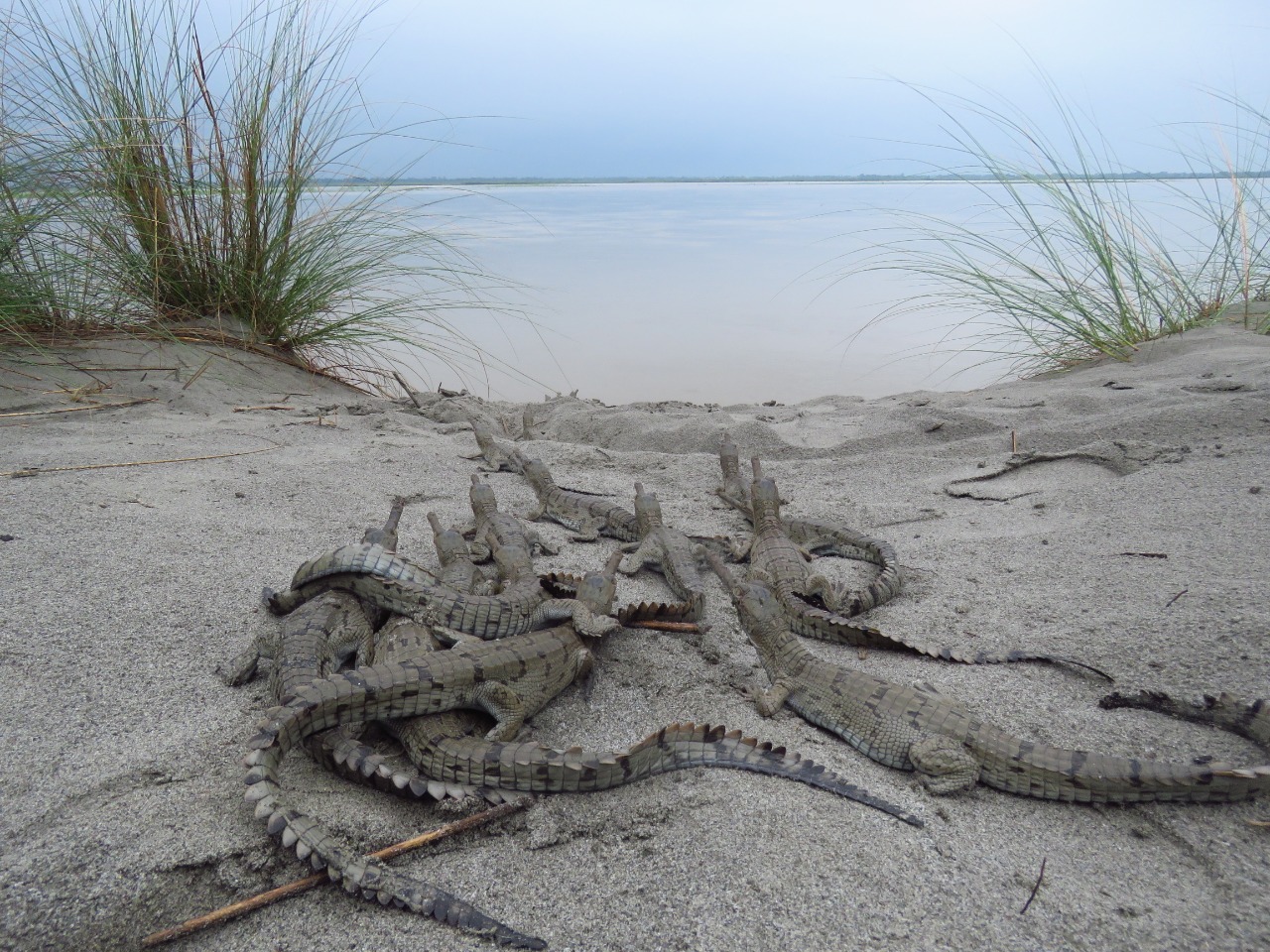
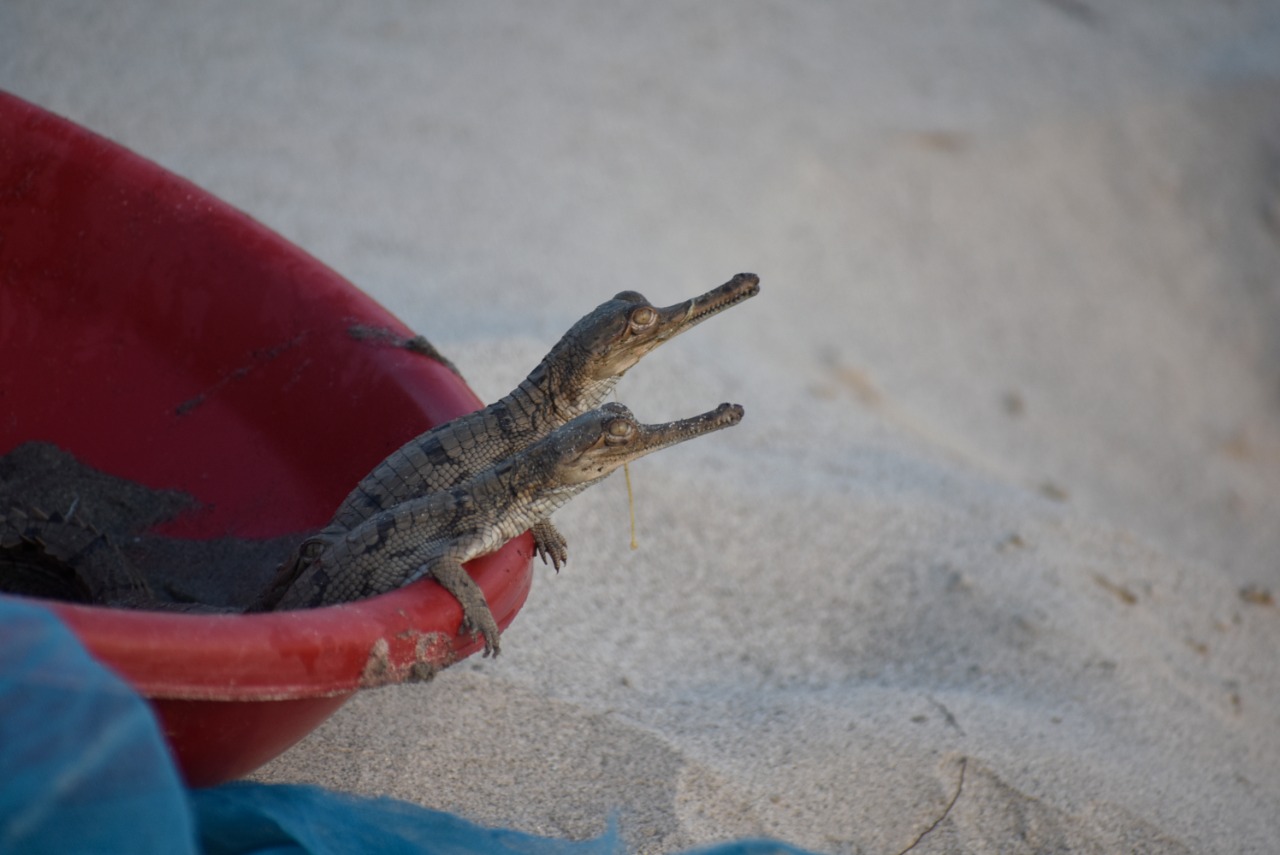
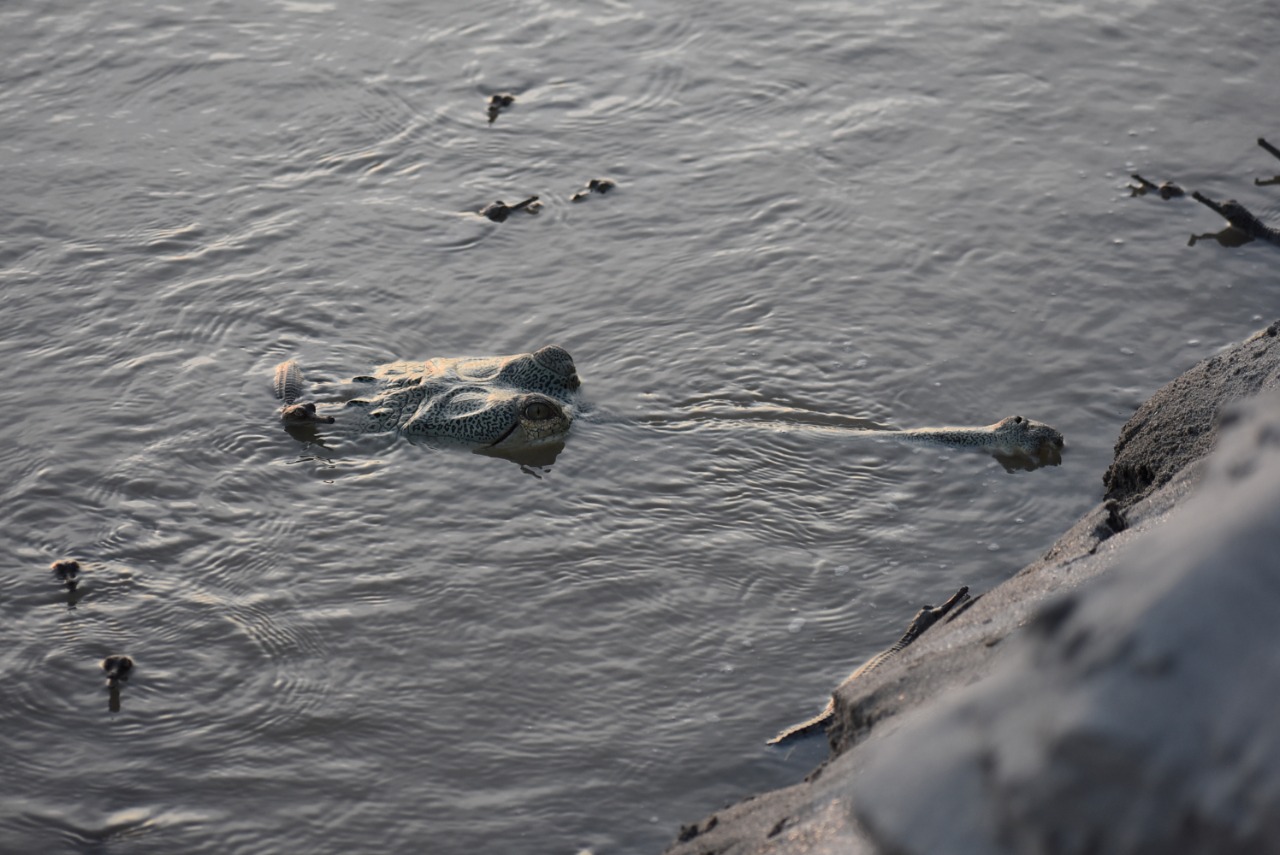
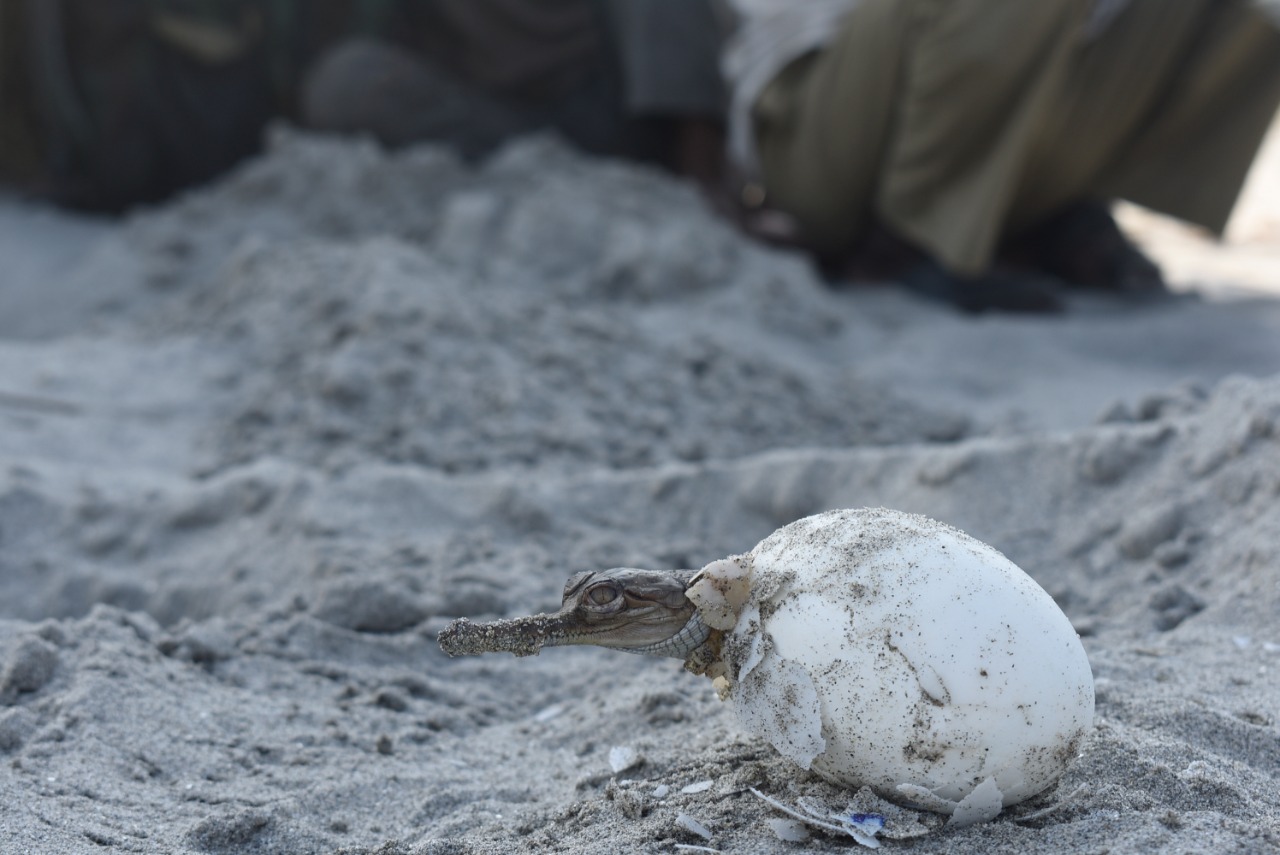
Photo credits : Subrat Kumar Behera/ WTI
“Soon the hatchlings will be in a crèche close to the mother and till the monsoon flood comes they will be guided by the mother to avoid flash floods taking them in to sheltered lagoon like situations,” explained Prof B C Choudhury, IUCN Crocodile Specialist Group member and WTI’s Trustee under whose expert guidance this project has delivered exceptional outcomes.
The habitat of the critically endangered gharial is localised to 14 widely spaced riverine ecosystems both in India and Nepal and there are only six confirmed breeding sites of this enigmatic species in these two countries.
WTI, in collaboration with the Environment, Forest and Climate Change Department, Govt of Bihar and supported by the Los Angeles Zoo and Botanical Gardens had initiated the Gandak Gharial Recovery Project in 2014 with in-situ nest relocation by trained community watchers to minimize the loss of eggs to both predation and riverbank erosion.
“Since the inception of the project, we have successfully hatched and released 168 hatchlings back to the wild” stated Dr Samir Sinha, WTI’s Head of Conservation.
WTI’s team is continuing its surveillance and monitoring along the river bank to ensure no nests are left unguarded. “This year we could locate six gharial nest. Taking into account adult female sightings, we expect a possibility of ten more nests considering the sighting of additional female gharials in our surveillance.” added Subrat Behera, WTI’s on-site Project Head.
“The Bihar government is considering WTI’s proposal to declare this 140 km stretch of Gandak river as a Conservation Reserve under the Wildlife Protection Act (1972), because of the importance of this habitat for the critically endangered gharial and our national aquatic animal, the Gangetic dolphin” surmised Dr. BC Choudhury.